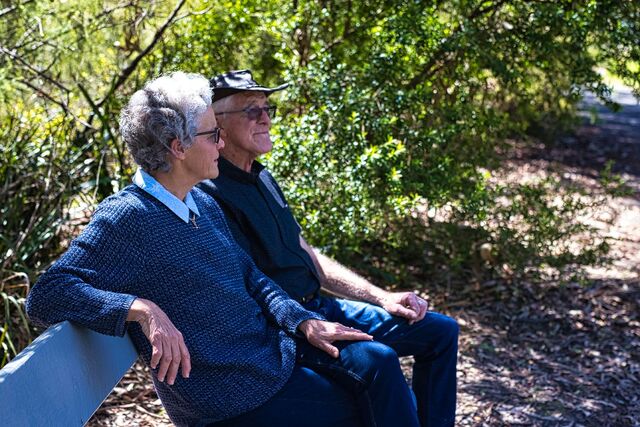Addressing ageism is a critical strategy in preventing elder abuse.
Evidence strongly suggests that ageism and disrespect are key drivers of the mistreatment of older adults.
A study by the Australian Institute of Family Studies (AIFS) found that around one in six older Australians had experienced elder abuse, with financial and psychological abuse being the most common forms.
At Eastern Community Legal Centre (ECLC), we know that educating communities about the harms of ageist attitudes, and the links between ageism and elder abuse is crucial.
By shifting ageist attitudes and behaviours, we can help to create communities where older people feel safe, valued and respected, and elder abuse is prevented before it occurs.
As part of the Centre’s work to prevent elder abuse, ECLC leads the Eastern Elder Abuse Network (EEAN) – a network of organisations in Naarm’s (Melbourne’s) East working to prevent, raise awareness, and respond to elder abuse.
The EEAN has over 160 members from more than 50 organisations.
How is Ageism connected to elder abuse?
1) Ageism is rooted in societal views that often see older people as frail, dependent, or less competent.
These negative stereotypes can result in older adults being mistreated including physical, emotional, financial, or neglectful abuse.
2) When society overlooks the value and rights of older people, abuse is more likely to go unrecognised or unreported.
Ageist attitudes can lead to a perception that older adults’ grievances are less serious or not credible, making it difficult for them to receive help.
3) Ageism reinforces power imbalances between younger and older people.
Financial abuse is a common form of elder abuse, often driven by the notion that older adults are less capable of managing their finances – justifying manipulation or theft.
4) When older adults are perceived as incapable of making their own decisions, it becomes easier for others to justify taking control of their personal, financial, or medical affairs.
This can lead people manipulating an older person’s decision-making to benefit themselves.
5) Ageist attitudes can marginalise older individuals, making them more susceptible to social isolation – a significant risk factor for elder abuse because it reduces opportunities for outside intervention or support. Older adults are also less likely to seek help because the abuse may be perpetuated by adult children or carers.
his can discourage victims from speaking out, and therefore limit their access to help.
How can you help?
– Learn more about how you can challenge ageism at opera.eclc.org.au or contact ECLC about its community education opportunities.
– Learn how to respond to ageist remarks in the workplace and/or social settings here:
eapn.org.au/wp-content/uploads/2024/10/A-Guide-for-Addressing-Ageism-in-the-Workplace-PDF.pdf
– Check out ‘Planning Your Future Medical Care Guide’ A practical tool for older Victorians to plan their future medical care needs. The Guide is available to be downloaded for FREE from eclc.org.au/futuremedicalcare/
To learn more about ECLC’s work and the EEAN, visit eclc.org.au/elder-abuse/#EEAN
If you or someone you know may have a legal problem or would like to speak to the team about elder abuse, you can contact ECLC for FREE legal help 1300 32 52 00 or use our online appointment form here: eclc.org.au/help







